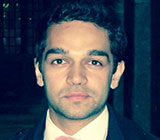 Researchers have long debated the relative complexity and importance of different scientific disciplines.
Researchers have long debated the relative complexity and importance of different scientific disciplines.
Traditionally, sciences that used the most mathematical equations—such as physics—were deemed the most intellectual and placed at the top of an academic hierarchy, while social sciences were consigned to the lowest point.
Willard Van Orman Quine, who held the Edgar Pierce chair of philosophy at Harvard University for over two decades, famously exemplified this belief in 1981: “Physics investigates the essential nature of the world, and biology describes a local bump. Psychology, human psychology, describes a bump on the bump.”
This culture in the world of academia led to a phenomenon that is referred to as “physics envy,” whereby mathematical analyses are inappropriately incorporated into reports in order to validate findings. Qualitative research is playing an increasingly important role in modern evidence based medicine and some researchers may be falling into this trap.
In recent years, qualitative health researchers have sought to use more scientific terminology and layouts in their reports, and ask more focussed research questions with clearer practical applications. These have been positive steps, and have undoubtedly increased the compatibility of social science disciplines with the hard nosed world of modern evidence based medicine. Indeed, qualitative research has successfully worked synergistically with quantitative methods in a variety of settings, such as mixed methods studies and exploratory studies, which have helped to improve recruitment rates to clinical trials.
An excellent example of this is the qualitative component of the ProtecT study. Through in-depth interviews, the researchers established that potential participants were misinterpreting terminology used to explain the study, and subsequent changes to patient literature led to substantial increases in recruitment to the trial. Indeed, qualitative research has served many other functions in experimental trials, including the development of research hypotheses, explaining unexpected findings, and assessing the acceptability of interventions.
There has, however, been a less positive consequence of this phenomenon. Given the key role of mathematics in elevating the status of physics in the academic world, some social scientists have attempted to apply quantitative frameworks to qualitative data in order to show rigour.
This is well illustrated in a Health Technology Assessment report, in which a number of methods to synthesise qualitative research are described. These methods are broadly interpretive or integrative in nature. Interpretive approaches, such as meta-ethnography, require the reviewers to immerse themselves in the data in order to develop a new conceptual model to explain the findings. Integrative approaches, however, involve the aggregation and pooling of findings, often imitating numeric approaches used in quantitative meta-analysis.
Although this may make the method more reproducible, it raises a fundamental question about the nature of qualitative research; if a word or theme appears more frequently, should it automatically be considered more significant?
These aggregative approaches may lack the inclusiveness and thoughtfulness needed to produce a comprehensive understanding of the material. Thus, there may be a danger of losing the uniqueness of the insights captured through these methodologies. By forcing a numerical format where it does not naturally fit, there is a danger of paradoxically “dumbing down” analyses, when the intention was to make the process more robust and precise.
A variety of disciplines contribute to health research, and social sciences help to fill many gaps in our understanding of health and illness experiences. We must, however, recognise that each discipline has different methods and frameworks. Mathematics is not always necessary to validate research findings, and trying to impose it on social science research may be damaging.
Ahmed Rashid is an NIHR academic clinical fellow in general practice at the University of Cambridge. You can follow him on Twitter @Dr_A_Rashid
I declare that I have read and understood the BMJ policy on declaration of interests and I hereby declare the following interests: none.